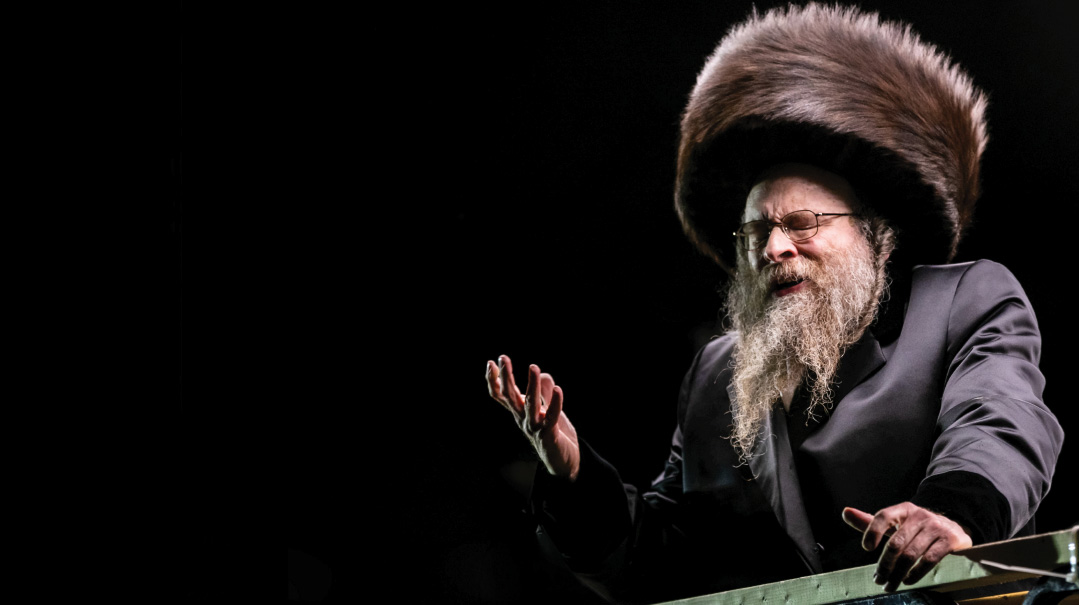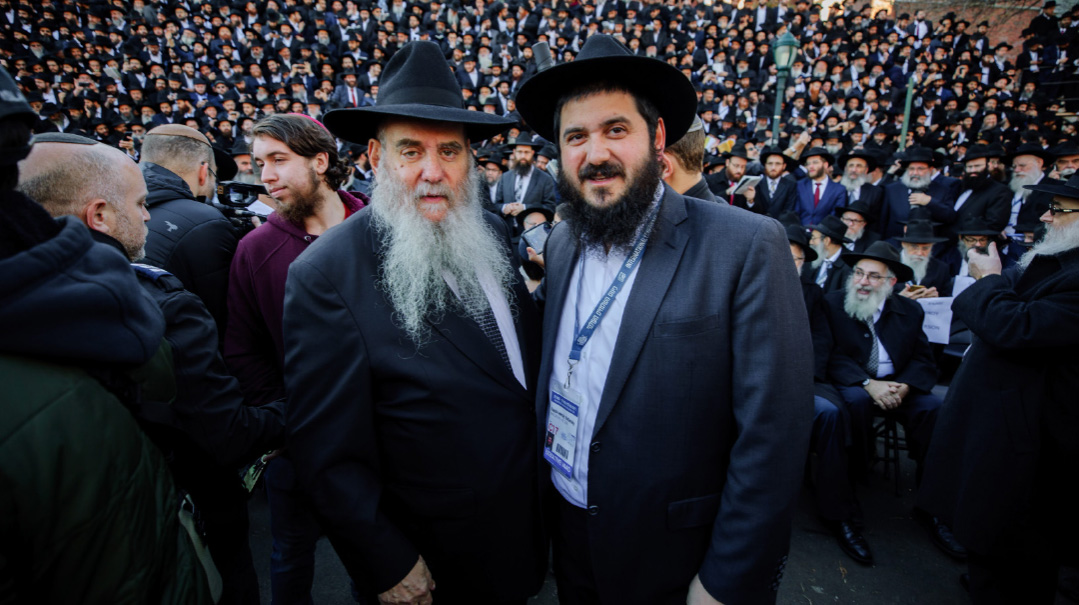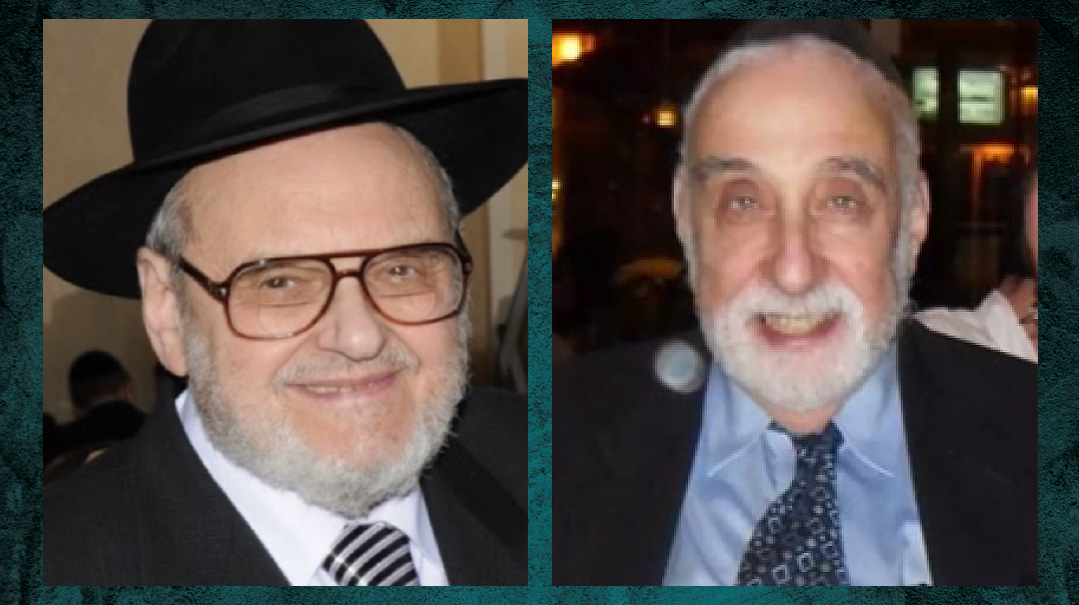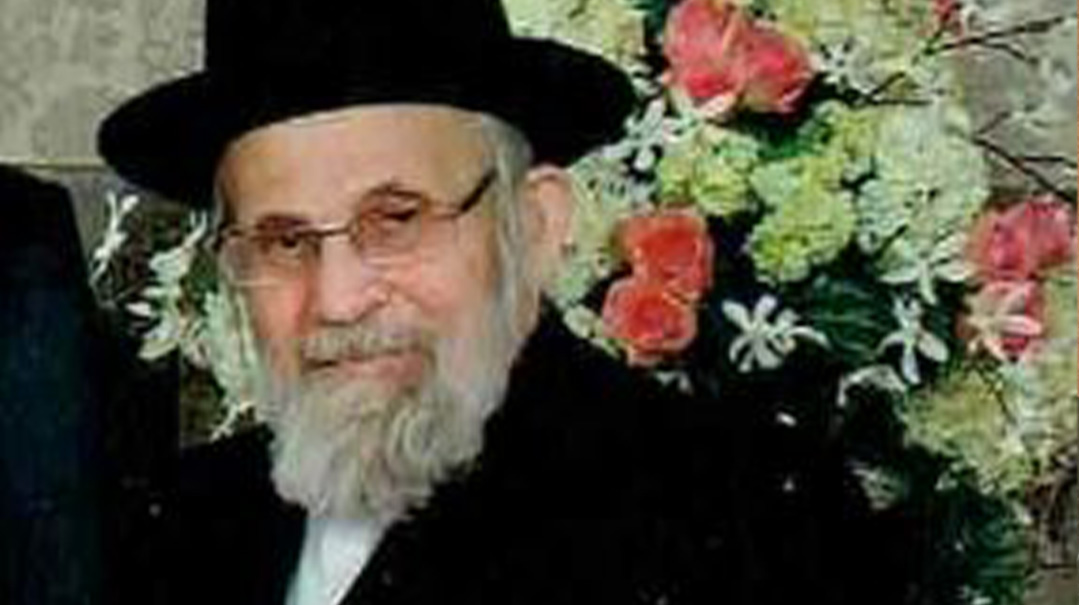Humble Servant
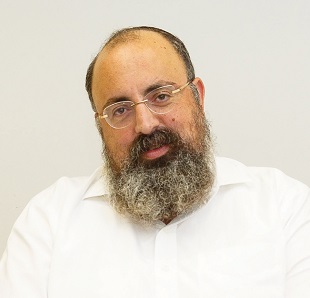
In tribute to Chacham Shimon Baadani ztz”l
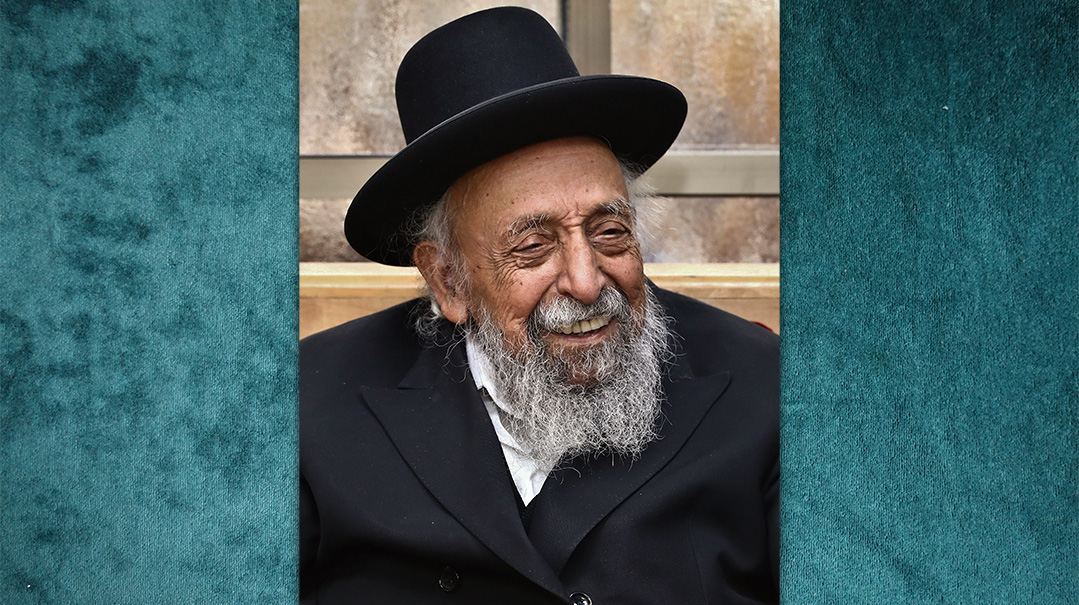
Photo: Yaakov Cohen
IT
was the early days of the Shas movement, in the mid-1980s, and Rav Ovadiah Yosef had embarked on a new public path with two young rising stars at his side: his friends Porat Yosef rosh yeshivah Chacham Shalom Cohen and rosh kollel Chacham Shimon Baadani, zichronam livrachah.
It was an interesting combination. His tremendous brilliance in Torah notwithstanding, Rav Ovadiah Yosef engaged with people of all kinds. He was the Sephardic chief rabbi of Israel, and before that, the chief rabbi of Tel Aviv, a dayan in the rabbinical courts, and delivered shiurim to working men in the shuls of Jerusalem’s Beis Yisrael and Bucharim neighborhoods. In contrast, while the two roshei yeshivah primarily interacted with bnei Torah, they joined together for the benefit of establishing a political framework that would “restore the crown to its former glory.”
But maybe it wasn’t so surprising after all. If there was anyone who understood what the Sephardim had been through in the decades since the establishment of the state and even before, it was Shimon Baadani.
Rav Baadani, who passed away last week on 18 Teves at age 94, was born in 1928 in Hadera in what then was Mandatory Palestine, an 11th child to Yemenite parents who had arrived in Eretz Yisrael after World War I with just three surviving children out of ten. After religious schooling in Hadera, he attended the Novardok Yeshiva, which had opened a branch in Jerusalem in the 1930s headed by Rav Benzion Bruk, and after several years there, he moved on to Porat Yosef, under the leadership of Rav Ezra Attiyah.
Rav Ovadiah was himself a product of the yeshivah and a leading disciple of Rav Ezra Attiyah. But when Rav Ovadiah returned from his rabbinical post in Egypt and had no way of earning a living in Eretz Yisrael, the hanhalah of Porat Yosef informed him that the yeshivah’s meager budget precluded them from paying him as a maggid shiur.
Rav Ovadiah forgave the affront and began to learn instead in the Kollel Kodshim established by Jerusalem chief rabbi Rav Tzvi Pesach Frank, where he was able to rise in Torah and earn a bit of money to live on as well, until he was appointed a dayan on the rabbinical court of Petach Tikvah some six years later.
B
ack in the 1960s, while Rav Ovadiah was still working his way through the rabbinical court system, the two roshei yeshivah from Porat Yosef continued to shine in the Katamon neighborhood of Jerusalem: After the Jordanians captured the Old City in 1948 and the yeshivah was destroyed, Porat Yosef reopened a branch in Geula under Rav Ezra Attiyah and Rav Yehuda Tzadka, and another branch in Katamon, headed by two young and dynamic maggidei shiur, Shalom Cohen and Shimon Baadani, both of them magnets for young students from all over the country.
After the Old City was liberated in 1967, Porat Yosef eventually moved back and was rebuilt, now headed by Chacham Shalom Cohen; Rav Shimon Baadani decided that the yeshivah was well enough established and that the time was ripe for him to leave its leadership in the capable hands of his friend. He moved to Bnei Brak to establish and head Kollel Torah V’Chaim, where he taught myriad students who went on to serve as rabbanim, roshei yeshivah, dayanim, and poskim in Israel and abroad.
When I had the privilege of visiting him a few years ago together with my colleague Aryeh Ehrlich, we asked Chacham Baadani why he decided to leave the leadership of Porat Yosef.
“At the time, there was no Sephardic Talmud Torah, yeshivah, or kollel in Bnei Brak,” he told us. “People said to me, ‘Come, do something.’ I decided that I needed to move to Bnei Brak to help the revolution. I said to Chacham Shalom, ‘Kevodo will take over the yeshivah, and I will move to Bnei Brak. I’ll come two days every week to help you.’ And that’s what happened. I came each week — and to this day, I go each year for Yom Kippur to daven at Porat Yosef.”
A
decade passed. Chacham Cohen was teaching Torah and continuing to develop Porat Yosef in the Old City, and Chacham Baadani established Torah institutions for girls and boys in Bnei Brak. And then their paths crossed again.
On Erev Pesach 1983, Rav Ovadiah Yosef ended his term as Israel’s chief rabbi and decided to move onto another front: He would establish a national movement, based on the two Sephardic-chareidi movements that had sprouted locally — Shas in Jerusalem, established by Reb Nissim Ze’ev, and Chai in Bnei Brak, under the auspices of Rav Baadani.
Rav Ovadiah launched this campaign with three roshei yeshivah who would become members of the new Moetzet Chachmei HaTorah: Chacham Shalom Cohen, leader of the Sephardi Torah world in Jerusalem; Chacham Shimon Baadani, spiritual leader of the Sephardi bnei Torah in Bnei Brak, and Chacham Shabtai Atoun, Rosh Yeshivat Reishit Chochmah.
And while Chacham Shalom represented the Sephardic Torah world on the Moetzet, Rav Baadani became the pillar of chinuch, the angel who struck the head of the Shas chinuch system that was coming into being and told it, “Grow.” He was the wellspring that nourished the Ma’ayan HaChinuch HaTorani, traveling around the country, deciding where to establish schools and whom to choose as principals — and he was always available, with endless love and caring. He answered all phone calls himself and opened the door to anyone who knocked. The entire Shas chinuch revolution, which made it possible for tens of thousands of children to receive a pure Torah education, is to Chacham Baadani’s credit.
“I was also one of those children gathered from a simple home and brought to yeshivah,” Rav Baadani told us in our conversation. “If not for those pious tzaddikim, the Novardokers, who persuaded me to come learn in their yeshivah, I could have become just another Shimon in the marketplace. I promised myself that I would push that great chesed forward.”
Chacham Baadani was known for his simple lifestyle without pretense. In between all the phone calls and visits, he assisted widows from his personal bank account and purchased tefillin for orphaned boys celebrating their bar mitzvah. He was also a hardworking shadchan and even set aside a room in his house for a shidduch organization, and paid the salaries of the shadchanim himself.
T
hroughout his years on the Moetzet Chachmei HaTorah, Rav Baadani had two portfolios: chinuch and hashkafah. In both these areas, none of his colleagues — including Rav Ovadiah himself — ever undermined his decisions. He was quiet yet firm and expressed his views in a whisper, but in a way that left no room for doubt or ambiguity — and most importantly, with endless concern for Klal Yisrael.
He came to the meetings of the Moetzet without any escorts or gabbaim, and usually with a random hitch that he was able to get from someone in the kollel he learned in every day. At the meetings, he took his place on the side, as if he were an observer who happened to drop in. He refrained from expressing himself on matters that were not related to chinuch, because those other things weren’t his mission.
Still, with all the clout he carried, the political arena was foreign to him. The dilemma of placement on lists, the questions of who would be appointed minister, the photos with the prime ministers — this was all out of his realm. When he felt the discussion was veering to political minefields that he had nothing to contribute to, he would ride to the Old City for Minchah, and then spent a few hours in Porat Yosef learning, as was his longstanding practice for many years each Wednesday.
Everyone knew one thing: When Rav Shimon Baadani expressed an opinion, it was not the outcome of lobbying and pressure from intermediaries or fragments of rumors that he heard incidentally. He made sure to have his information firsthand. And that meant riding on buses, visiting development towns, and only taking information from objective sources.
R
av Baadani’s integrity and sincerity, coupled with his background as a “Sephardi Novardoker,” put him in a unique position when it came to the sparring between Shas and Degel HaTorah. Their first major rift related to the question of joining the Rabin government in the early 1990s. Shas joined, while Degel HaTorah remained outside the government, referring to it as “a government of shmad.” While Rav Baadani at first objected to joining, he eventually submitted his opinion to his colleagues on the Moetzet, but from that moment on, he dedicated himself to preserving the delicate threads that held together the parties, and made sure, as long as he was in the position, to hold onto those threads so that the bond would not fray.
He was a rosh yeshivah and a Torah leader, but he realized that he had a responsibility to the entire nation and interfaced with an unexpected array of those in the seats of power.
“I had the privilege of knowing him and having meetings with him over the years, in which I saw a great love of Israel,” said MK Gideon Saar.
And Israel Police Chief Kobi Shabtai called him “a symbol and an example of unique self-sacrifice for the establishment of Torah institutions. His passing is a major loss. I visited him at home and, more recently in the hospital, and I always got great wisdom from his counsel.”
(Originally featured in Mishpacha, Issue 945)
Oops! We could not locate your form.

